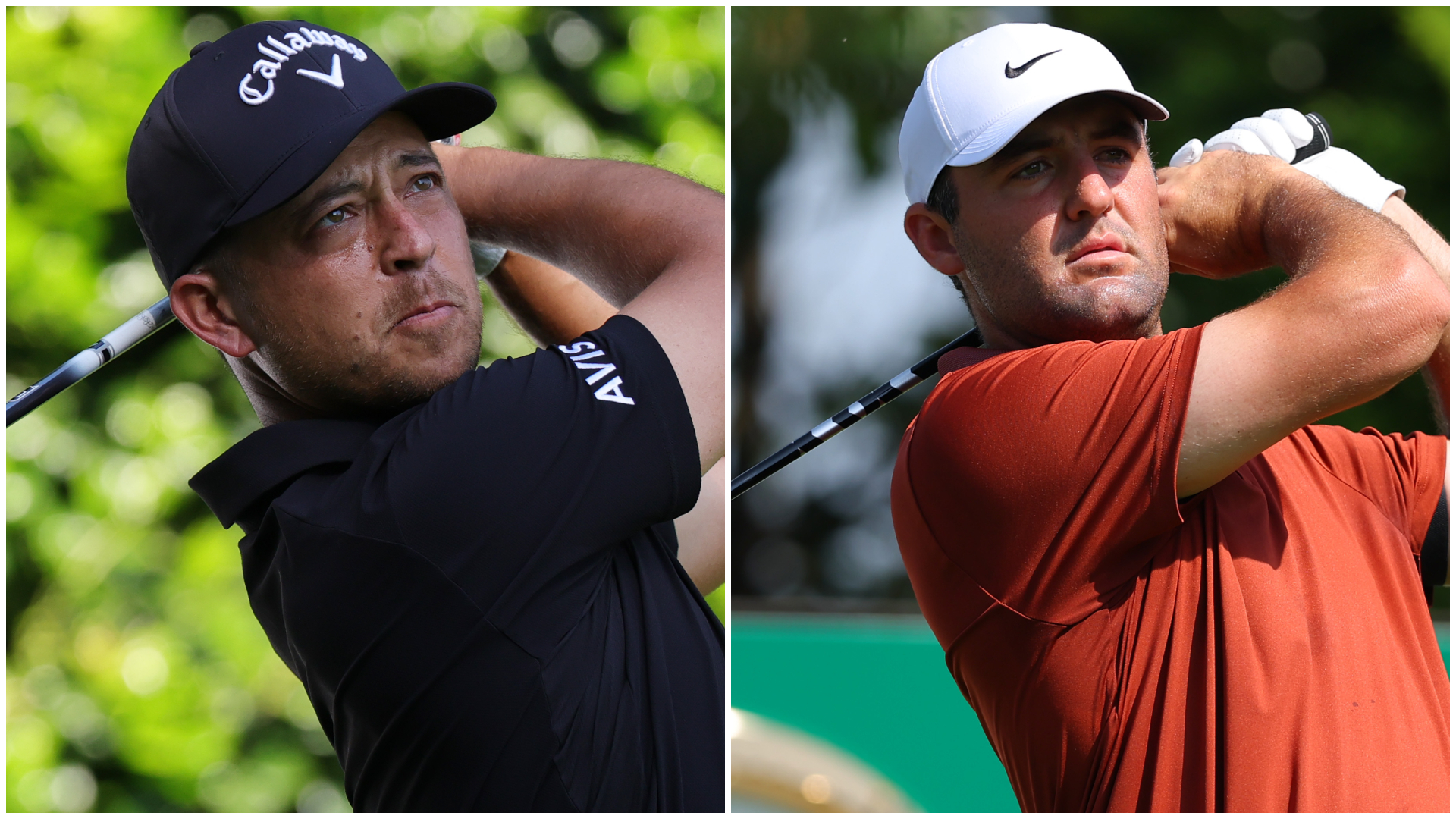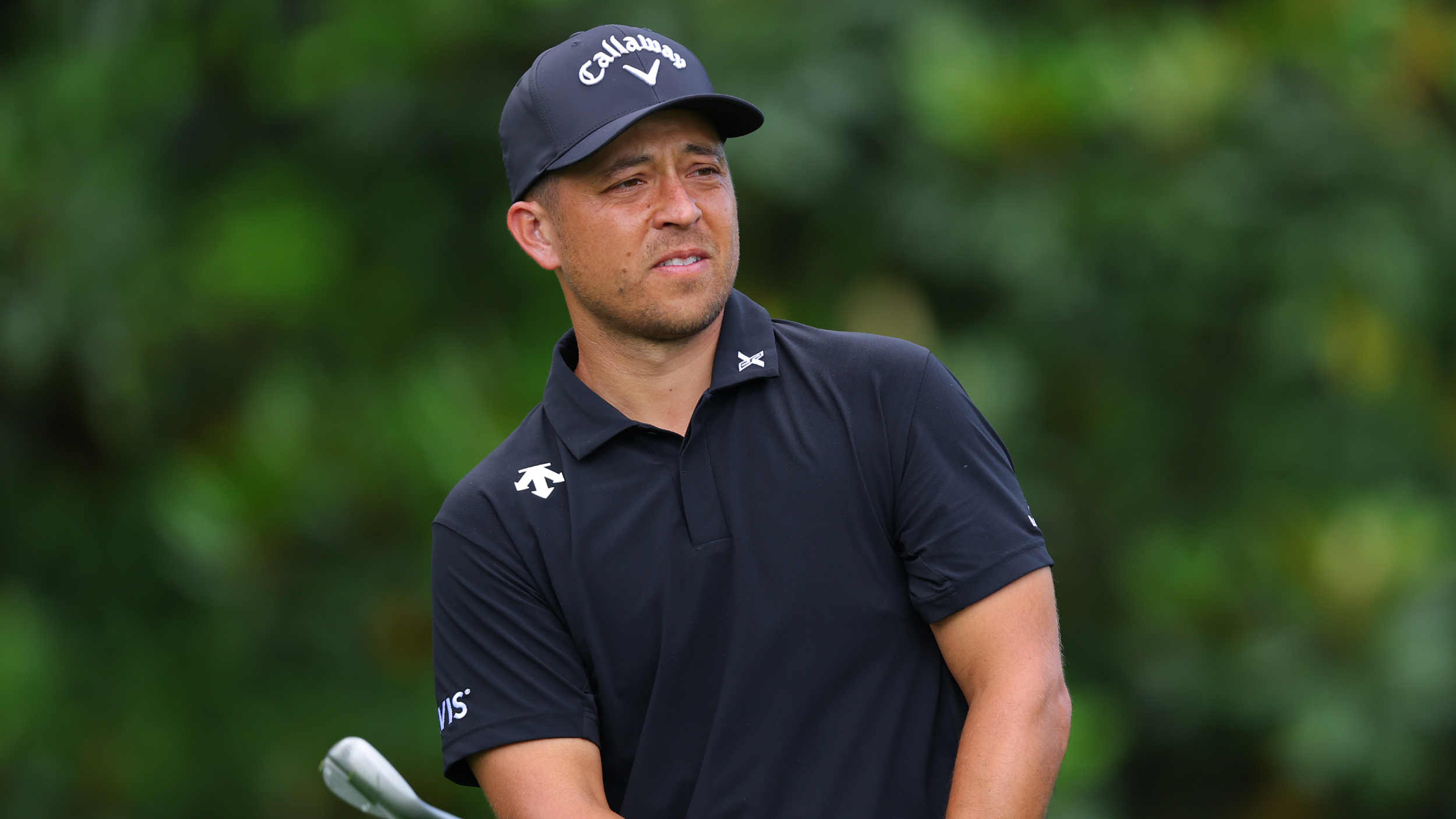
During the morning wave on the first round of the PGA Championship at Quail Hollow, questions were asked over the PGA of America’s decision not to implement preferred lies despite downpours earlier in the week leaving an issue with mud balls.
That was particularly evident on the 16th where playing partners Xander Schauffele and Scottie Scheffler experienced mud balls after their tee shots landed on the fairway. Without the option to lift, clean and place, that cost them on their next shots as they both hooked well left into the water, resulting in each making a double bogey.
On Wednesday evening, the PGA of America released a statement saying: “We do not plan to play preferred lies. The playing surfaces are outstanding and are drying by the hour.” However, afterwards, both players had something to say about the decision.
Schauffele, who finished on one-over, was blunt in his assessment of the decision, saying: “Had a ridiculous mud ball there on 16 with Scottie. We were in the middle of the fairway, and I don't know, we had to aim right of the grandstands probably.
“I'm not sure. I aimed right of the bunker and it whipped in the water and Scottie whipped it in the water, as well. It is what it is, and a lot of guys are dealing with it, but it's just unfortunate to be hitting good shots and to pay them off that way. It's kind of stupid.”

The defending champion added: “I wouldn't want to go in the locker room because I'm sure a lot of guys aren't super happy with sort of the conditions there. I feel like the grass is so good, there is no real advantage to cleaning your ball in the fairway. The course is completely tipped out. It sucks that you're kind of 50/50 once you hit the fairway.”
Scheffler, who recovered well to finish on two under for the day, was asked if there had been any indication that introducing preferred lies was under consideration.

He said: “By the way, this is going to be the last answer that I give on playing it up or down. I mean, I don't make the rules. I think when you're looking at the purest forms of golf, like if you're going to go play links golf, there's absolutely no reason on a links golf course you should play the ball up. It doesn't matter how much rain they get. The course could be flooded under water and the ball is still going bounce somehow because of the way the turf is and the ground underneath the turf.”
With that established, he turned his attention to this week’s North Carolina course: “In American golf it's significantly different,” he said. “When you have overseeded fairways that are not sand-capped, there's going to be a lot of mud on the ball, and that's just part of it. When you think about the purest test of golf, I don't personally think that hitting the ball in the middle of the fairway you should get punished for.”
Despite that, Scheffler acknowledged that this week’s course would offer as good a situation as any for a US layout, but he still questioned the decision not to introduce preferred lies.

“On a golf course as good or conditioned as this one is, this is probably a situation in which it would be the least likely difference in playing it up because most of the lies you get out here are all really good,” he said. “So I understand how a golf purist would be, ‘oh, play it as it lies.’
“But I don't think they understand what it's like literally working your entire life to learn how to hit a golf ball and control it and hit shots and control distance, and all of a sudden due to a rules decision that is completely taken away from us by chance.”
“In golf, there's enough luck throughout a 72-hole tournament that I don't think the story should be whether or not the ball is played up or down. When I look at golf tournaments, I want the purest, fairest test of golf, and in my opinion maybe the ball today should have been played up. But like I said, I don't make the rules. I deal with what the rules decisions are.”







